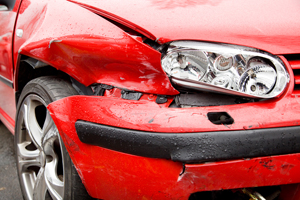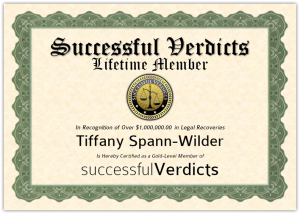 1. CALL YOUR INSURANCE COMPANY TO REPORT THE CLAIM. Your insurance company can help start getting your vehicle repaired and possibly get you a rental car quicker than the at-fault driver’s insurer. In South Carolina, you have 15 days to confirm that the car had insurance coverage. Failure to do this could result in a license suspension. You should also call the at-fault insurance company to establish a claim number and to have them evaluate your car for damages.
1. CALL YOUR INSURANCE COMPANY TO REPORT THE CLAIM. Your insurance company can help start getting your vehicle repaired and possibly get you a rental car quicker than the at-fault driver’s insurer. In South Carolina, you have 15 days to confirm that the car had insurance coverage. Failure to do this could result in a license suspension. You should also call the at-fault insurance company to establish a claim number and to have them evaluate your car for damages.
2. DO NOT GIVE A RECORDED STATEMENT TO THE AT-FAULT INSURANCE COMPANY. You may provide them with details about how the accident happened, but DO NOT let them record you. You could still be upset following the accident and you do NOT want this recorded statement to be used as evidence against you later. PLEASE NOTE: you are required to cooperate with your own insurance carrier, which includes giving them a recorded statement. You should always have your attorney present during your recorded statement.
3. IF YOU ARE HURT, DON’T DELAY IN GETTING TREATMENT. Insurance companies take the position many times that if you were really hurt you would have sought treatment immediately. However, sometimes you don’t start to feel pain until a day or two later. The insurance companies prefer to see the injuries as noted by a medical doctor, not just by your own statements.
4. It can be useful to have property damage estimates done but it is not always necessary depending on what the insurance company recommends.
5. OBTAIN THE ACCIDENT REPORT: Get a copy of the police report and review it to be sure it is accurate as to how the accident happened and who was in the vehicles. If it is not accurate, contact the officer to report any needed changes.
6. TOTAL LOSS EVALUATION: If your vehicle is a total loss, be sure to stay on the insurance company to get the property damage squared away. The insurance companies will not pay for a rental for very long nor will they pay for the storage that accumulates due to a delay on your part. If you have collision coverage on your vehicle, you can have them evaluate your vehicle too. As you will have to purchase a new vehicle you may want to g with the highest offer. If your insurance is used, you will get the estimate, less your deductible. However, they will recover your deductible from the other company and return it to you. This process can take several months for the recovery of your deductible.
7. MEDICAL AUTHORIZATIONS: Never sign a medical authorization for the at-fault insurance carrier to obtain your medical records. Many times the doctors send items not related to the accident containing personal information that is irrelevant to the accident. You should request your own bills and records to review before submitting to the insurance company.
8. RELEASE OF CLAIMS: If you are injured, never sign a release or take money on your case for bodily injury (property damage is separate) until you know what the longer-term impact of your injuries will be. Some insurance companies are at your door within 24 hours of an accident offering you a certain amount of money and they say they will pay your medical bills up to a certain amount. Medical care can be extremely costly. Depending on your injuries, the amount offered may not be enough and your bills could exceed what they indicated they would pay. In addition, the insurance adjuster will ask you to sign a limited release which they say will pay for continued medical treatment up to a certain amount. BEWARE: these releases typically leave it up to the insurance company (not your doctor) as to what is “reasonable and necessary” treatment. In many cases, the insurance company will later deny your treatment.
9. WAGE LOSS: If you must miss work, be sure you get a doctor’s note. An insurance company and many juries will not pay you for lost wages without a doctor’s note showing you were unable to work. Thus, time you take off just because you don’t feel well may not be compensated if it is not supported by medical documentation. Be sure to see a doctor and obtain a note for any days you are out related to the accident.
10. HEALTH INSURANCE REIMBURSEMENT: If you have health insurance, your health insurance can and many times will pay your medical bills to take the stress off of you during your recovery time. Your health insurance carrier may have to be repaid when you settle your case, this is called subrogation. If your coverage is from Medicaid and/or Medicaid, we are obligated to report the accident to them and the treatment related to accident for which they paid. Once it is time to settle the case we are often able to negotiate with them further to reduce the amount you may have to repay.
11. REMEMBER: the adverse insurance company is not representing you, the adjuster is not your friend. They have a bottom line to protect and your best interest is never their concern. Only your lawyer is in the business of helping you document your claim to recover the money you deserve.
Contact Us For A FREE Consultation
843.266.7792 (office) • 800.866.3830 (toll free) • 843.266-7797 (fax)
2131 Dorchester Road (29405) • North Charleston, SC 29405
843.266.7792 (office) • 800.866.3830 (toll free) • 843.266-7797 (fax)
2131 Dorchester Road (29405) • North Charleston, SC 29405
Footer
DISCLAIMER
The information you obtain on our website is not, nor is it intended to be, legal advice. It is always best to consult an attorney directly for advice regarding the specifics of the individuality of your claim. We welcome your calls, letters and electronic mail. Please do not send any confidential information to us until such time as an attorney-client relationship has been established as the information may be discoverable by the other party to your claim if we do not proceed with your representation. This website should not be considered as a description or characterization of the quality of the firm's representation and in no way should be interpreted as a guarantee of a specific result for your case. Every case is different and must be evaluated on its own merit.
©Spann Wilder Law, LLC. All rights reserved.
